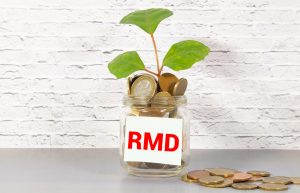
A significant number of Americans are approaching retirement age, requiring a renewed look at government-provided benefits: Social Security and Medicare. Below is a brief explanation of those entitlements.
Social Security
According to the Social Security Administration an estimated 10,000 people each day turn 62 years old, and are thus eligible for Social Security benefits. This boom is expected to continue for the next 20 years or so.
The year in which you were born determines the age at which you may apply for Social Security and obtain full benefits. The Social Security Administration provides a chart to help you determine full retirement age. For instance, full retirement age is 65 for those born in 1937 and earlier. For those born in 1960 and later, full retirement is at 67.
There is a Social Security Retirement Estimator that can be used to determine what you may receive in benefits at age 62, at normal retirement age, and at age 70.
These different ages and calculations raise a number of questions, such as whether a person should wait until age 70 to begin receiving Social Security benefits.
Expectations of longevity are certainly a factor. Relatedly, whether a person taking the money earlier will do more with it, either in terms of investment return or personal enjoyment than if it stays with the government several more years.
If you have a spouse who is substantially younger and who has earned less money, waiting until age 70 may offer an advantage to the spouse as a likely survivor. He or she will receive a survivor’s benefit based on the payments earned by the deceased older recipient, including any credit earned by delaying the receipt of retirement benefits.
Dependents and survivors of the worker also receive the benefit of any increase. It is estimated that when comparing the benefit received by a person who began collecting at age 66 versus one who began collecting at age 70, the person who waited until age 70 gets “ahead” at age 81 or 82.
Medicare
Medicare is a federal health insurance program for persons 65 years of age and over. It is also available to those under 65 who are considered permanently disabled for purposes of the Social Security Act, and persons with end-stage renal disease. Medicare is not needs based, but rather is considered minimum essential health coverage under the Affordable Care Act.
disabled for purposes of the Social Security Act, and persons with end-stage renal disease. Medicare is not needs based, but rather is considered minimum essential health coverage under the Affordable Care Act.
Medicare only covers care that is determined to be reasonable and necessary in connection with the diagnosis or treatment of an illness or injury. It does not cover most preventive health care.
Medigap: Persons eligible for Medicare often purchase a private insurance policy called a “Medigap policy,” which helps pay for a series of deductibles and co-payments as well as various services and items that Medicare does not cover. Medicare with a Medigap policy can be a much less expensive option than carrying a primary health care policy if you are 65 or older.
Medicare Part A is the hospital insurance part of Medicare. It is free to everyone eligible. No premium for Part A is required from persons entitled to retirement or disability benefits from either the Social Security or the Railroad Retirement systems. Part A covers institutional care in hospitals and skilled nursing facilities, limited care offered by home health agencies, and hospice care.
Medicare Part B is a voluntary supplementary medical insurance benefit program. Monthly premiums are automatically deducted from the taxpayer’s Social Security or Railroad Retirement check, unless the beneficiary waives his right to be covered under Part B. Part B covers items such as physician visits, outpatient services, ambulance transportation, and durable medical equipment. Part B beneficiaries typically pay a portion of the cost of the service they are receiving as a deductible or co-payment. The required Medicare deductible is determined every January to take inflation into account.
Medicare Part C is referred to as Medicare Advantage, a supplemental managed care or fee for services plan that a person may elect to participate in. If you have Part A and Part B, you can join a Medicare Advantage Plan. With one of these plans, you do not need a Medigap policy, because it generally covers many of the of the same benefits that a Medigap policy would cover, such as extra days in the hospital after you have used the number of days that Medicare covers. The monthly premium varies by plan.
Medicare Part D is a voluntary prescription drug program that provides assistance to persons eligible for Medicare to pay for their drugs. Part D was added in January 2006. This program is not part of the traditional Medicare Plan Program, but rather is offered through private insurance plans.
Medicare enrollment is automatic for persons whose Medicare eligibility is based on entitlement to Social Security or Railroad Retirement benefits. An application for retirement benefits also constitutes an application for Medicare. If a worker decides to receive these other retirement benefits prior to age 65, Medicare enrollment automatically occurs at age 65 without further action required.
For persons eligible for Social Security at normal retirement ages older than age 65, Medicare must be applied for separately, since Medicare eligibility begins at age 65. To avoid delays in coverage, or premium charges for late enrollment, a person should apply for Medicare not earlier than three months prior to attaining age 65, and not later than three months after attaining age 65.
There are penalties imposed where the Medicare application is late. For each year that a beneficiary fails to enroll during his/her initial or special enrollment period, a 10 percent lifetime penalty on premium costs is applied once the beneficiary does enroll. This penalty affects only Medicare Part B premium payments for those beneficiaries who are entitled to Part A at no charge. A person that has group health coverage through one’s own or spouse’s employer upon reaching age 65 qualifies for a “special enrollment period” that avoids the late application penalty. However, if the person’s coverage comes through retiree benefits, there is no qualification for special enrollment, leaving open the possibility of the penalty assessment.
We recommend you research your Social Secuirty situation before reaching full retirement age so you can best determine how to handle receiving those benefits. We also recommend that you investigate Medicare with a Medigap plan once you reach age 65. More information can be found at Social Security Administration.
Please contact us at Sparkmon & Associates if we can be of assistance in this process.


